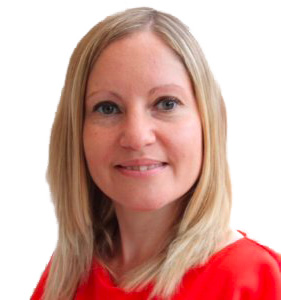Menopause doesn’t have to mean career pause

Opinion
With conversations about the menopause rising up the agenda, we need to work harder to recognise the value that midlife women bring to businesses.
Media coverage of the menopause and peri-menopause is changing the conversation around this topic. A plethora of celebrities, medical experts and writers are smashing taboos and ensuring that we say goodbye to tropes about ‘women of a certain age’.
Channel 4 is committed to normalising the subject, making it more visible, to inspire support for women in their workplaces when transitioning through the menopause.
Whilst the topic is high profile right now there is much work to be done to make a tangible difference to the individuals affected. It’s staggering that one in four women leave their jobs because of symptoms and stigma around the menopause.
The ‘Understanding Menopause’ survey conducted by Bloom, the professional network for women in the communications industry, found that only 29% of women feel comfortable talking to their colleagues about menopause.
Encouragingly 67% agree that they are comfortable with others talking about it, so perhaps we just need to get this conversation started. The biggest barrier to conversation is that it is not well understood and also very tellingly, for our youth-obsessed industry, that it relates to getting old.
Despite the fact that 70% agree that the symptoms had great deal or fair amount of impact, only 18% believe their company has a policy in place to support peri-menopausal or menopausal women. These levels are not good enough when you consider that 94% believe that having such a policy is important, and that no one in the survey agreed they had received a great deal of support at work whilst going through menopause.
Despite rising awareness many women are still reluctant to speak up about the challenges they face. This is often because of fears that it compounds other age-related biases and will negatively impact their career.
We need to work harder to recognise the value that midlife women contribute to businesses. Their experience brings with it creative and analytical skills that dwarfs any occasional brain fog.
Whilst the challenge of coping with a multitude of symptoms is often a step on from parenthood or caring responsibilities, it only serves to make them even more accomplished at empathetically collaborating with teams and clients to deliver great work.
Menopausal women are the fastest-growing section in the workforce
Furthermore supporting peri-menopausal and menopausal women is an intersectional issue that will ricochet positive impacts on gender and age-related biases. It’s an issue that is complexly interwoven with both physical and mental symptoms. Raising awareness will also halo onto other health-related barriers in the workplace.
Alongside all this awareness raising conversation, tangible support and change in our organisations is the next logical step. Comanies like Ogilvy, Channel 4, Dark Horses and Boots are blazing the trail.
Elaine Grell, chief people officer, Ogilvy UK, said: “Menopausal women are the fastest growing demographic in the workforce and we want to help more people to understand the challenges and help anyone who is affected to feel supported so that they can be the best that they can be.”
Pete Markey, CMO, Boots, revealed: “Boots has introduced a series of initiatives to break down barriers, raise awareness and support team members. These include dedicated training modules, a menopause network to encourage team members to learn from each other and share experiences, and access to counselling sessions”
To support other organisations with similar ambitions, Bloom inclusion group Bloom Mpower has launched the Bloom Menofesto this week in partnership with Major Players. It is a rallying cry for change in the language, support and understanding given to women in the industry in the lead up to, during and after their menopause. Bloom is committed to creating lasting change for women in the workplace.
Menopause policy has some ground to cover to catch up with other similar policies such as maternity policy, with 92% coverage according to the Bloom survey, mental health 82% and flexible working 75%.
Samantha Frankel, chief strategy officer, Bloom said at the launch hosted at Zappi: “The Bloom Menofesto is part of our commitment to empower midlife women, supporting the longevity of their careers and safeguarding the future of the next generation”
Let’s ensure this initiative is a building block for wider engagement with the lived experience of many women over 40. After all, this is an issue that 51% of the UK population will experience in their life.
 Anna Sampson is a Bloom member and mentor, Mpower member and consultant.
Anna Sampson is a Bloom member and mentor, Mpower member and consultant.




